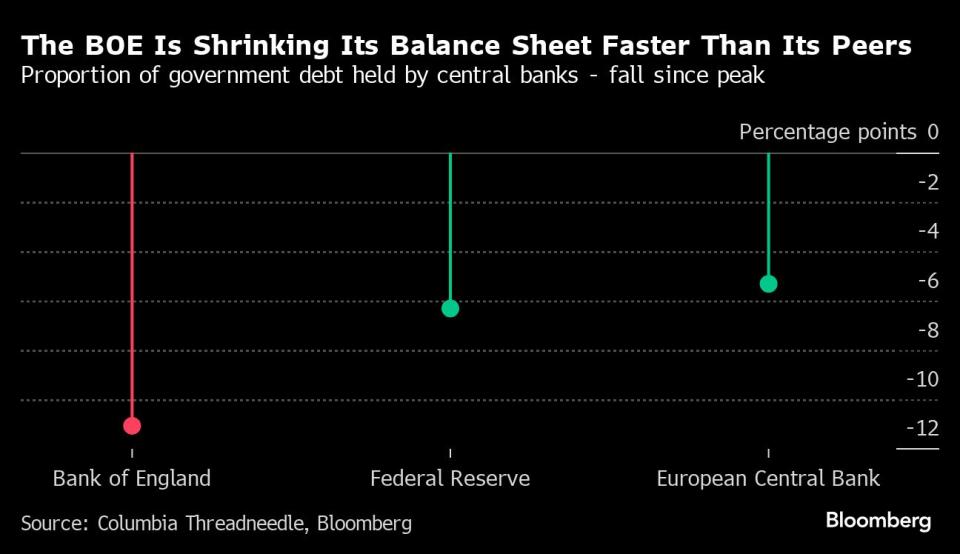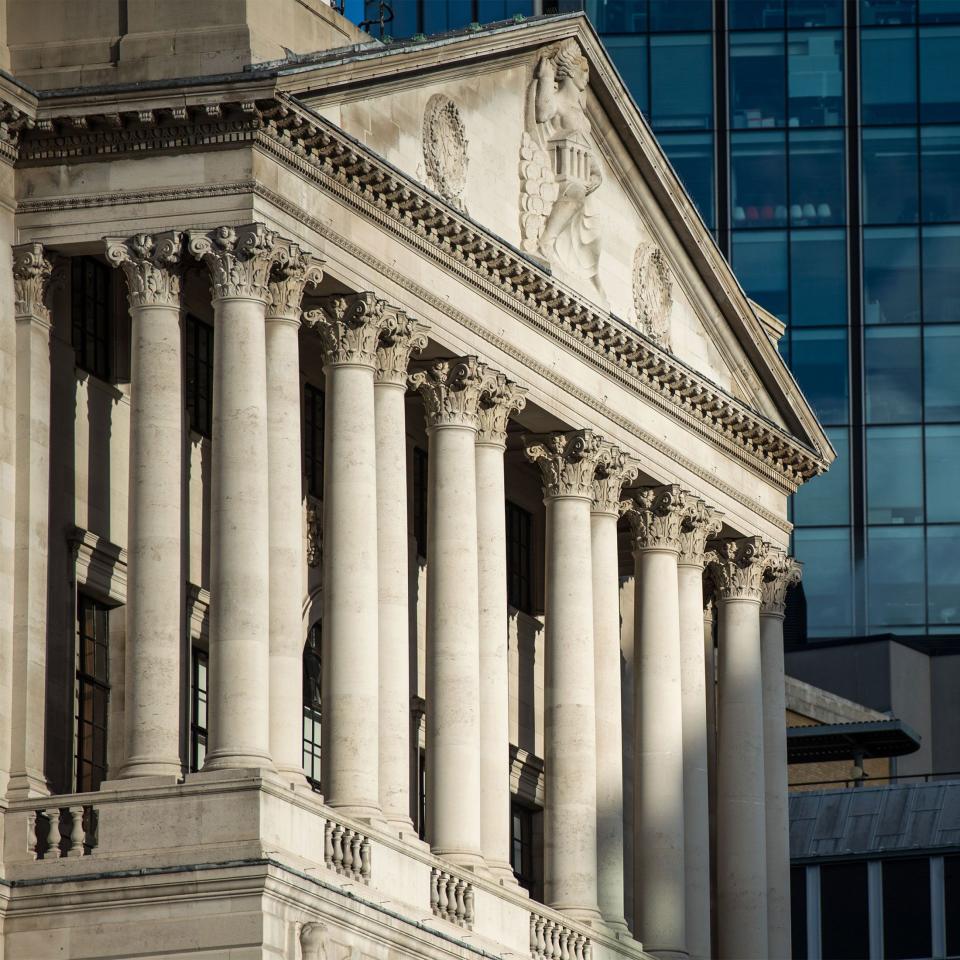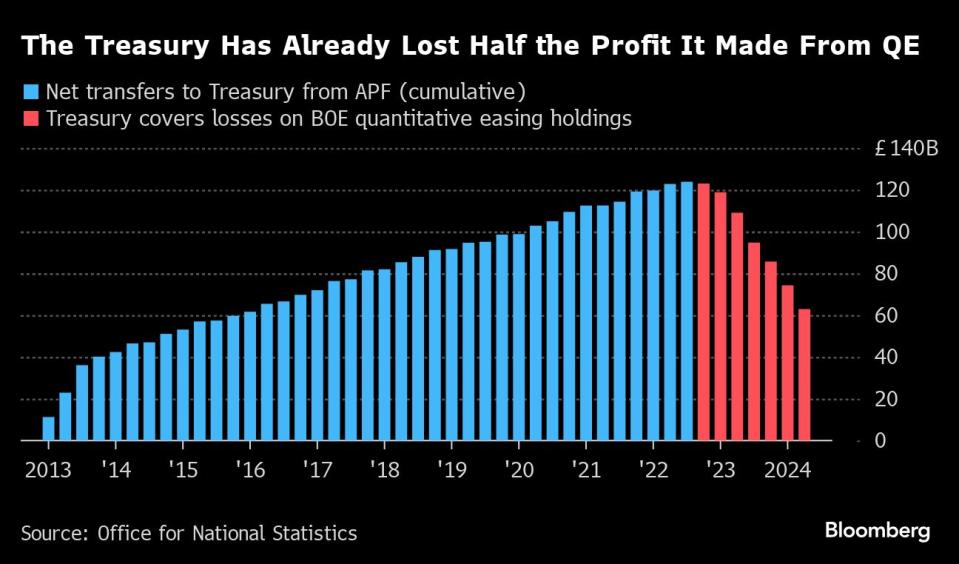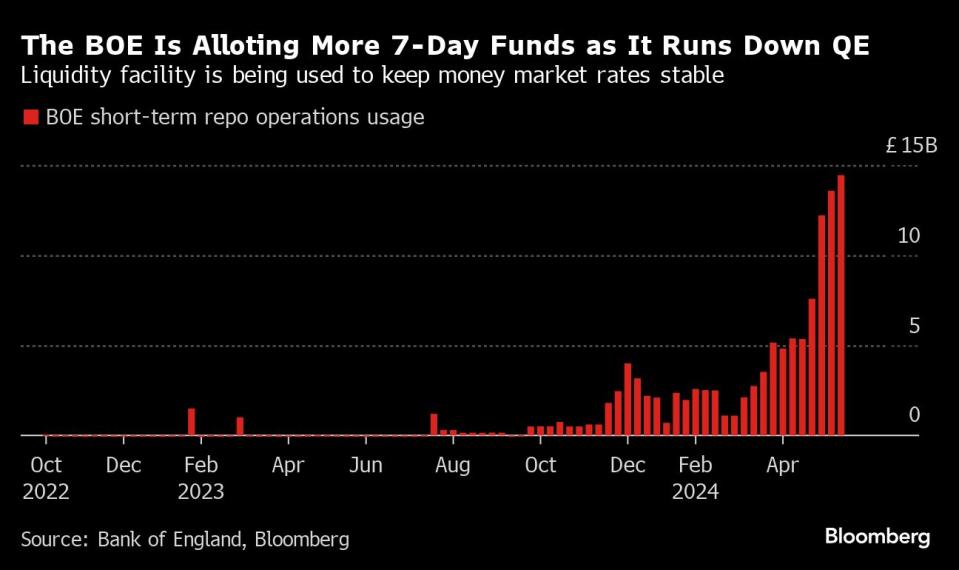BOE Urges Markets to Prepare for Big Rise in Repo Operations
(Bloomberg) -- Bank of England Governor Andrew Bailey told markets to prepare for a big increase in securities repurchase operations as it overhauls its liquidity arrangements and reduces the central bank reserves created to support the economy over the past 15 years.
Most Read from Bloomberg
One Dead After Singapore Air Flight Hit By Severe Turbulence
Citi Trader Got 711 Warning Messages Before Sparking Flash Crash
‘It Felt Like We Had Crashed’: Singapore Air Passenger Describes Turbulence Terror
Signaling a radical shift in the way it provides cash to financial institutions for their day-to-day operations, Bailey said he wants to replace the asset purchases done under quantitative easing with “repos” — or short-term loans.
Speaking at the London School of Economics on Tuesday, he set out plans to unwind the QE portfolio, which peaked at £895 billion ($1.1 trillion) in 2021, almost entirely over the coming years. QE became the BOE’s main monetary tool to boost the economy after the benchmark interest rate was cut close to zero in 2009.
One reason the governor wants to move from asset purchases to “repos” is to untangle the BOE from the fiscal effects of QE that have put it under intense political scrutiny. Official figures on Wednesday showed that the taxpayer has paid £61 billion to cover losses on the QE program since 2022, with £11.4 billion transferred from the Treasury in April alone.
That contributed to a £20.5 billion budget deficit in April, according to the Office for National Statistics, slightly higher than the £19.3 billion forecast by the Office for Budget Responsibility. A higher benefits bill and Chancellor Jeremy Hunt’s 2 percentage-point cut to national insurance, a payroll tax, in April also increased the deficit.
UK lawmakers have raised concerns about the escalating cost of QE, with some calling for changes to the program. Although it made a profit of £124 billion between 2009 and 2022, the Treasury spent the money. Losses are now preventing the government from topping up underfunded public services or cutting taxes.
Bailey said he was keen to move from QE to “repos” because doing so would remove the interest rate risk causing the losses. Under “repos”, the BOE would lend central bank reserves temporarily in exchange for collateral such as gilts. Because they are loans, “repos” carry minimal interest rate risk.
Under the current system, the BOE buys gilts with reserves. Because the interest currently paid on reserves is greater than what the BOE earns on the assets bought with those reserves, the arrangement is loss-making.
Moving to the new model would also be a return to traditional balance sheet operations. “For much of the bank’s history we have lent on a secured basis, primarily against government securities and trade bills,” Bailey said. “Perhaps it is time to return to such an approach.”
“The absence of interest rate risk substantially mitigates the financial risk on the central bank balance sheet. So from this perspective, providing central bank reserves through repo-operations has much appeal.”
The transition may not be smooth, however. Markets may hit some “bumps in the road” as the BOE switches from asset purchases to repos, Bailey warned. “We would expect a significant increase in our repo operations as we look ahead to the future, and the market should continue to ready itself for this.”
In recent months, commercial banks have been borrowing increasing amounts from the BOE’s Short-Term Repo operations, which are designed to “pick up emerging scarcity in reserves supply at an early stage.” The facility has broken previous records for usage in each of the last four weeks, with the most recent operation being tapped for £14.4 billion. Bailey said the development was “encouraging.”
Markets may hit a bump in 2025. Bailey estimated the minimum stable level of reserves the market and banking system will need for liquidity purposes will be £345 billion to £490 billion. He said the level could be reached “as soon as the second half of next year.” The current level is £760 billion.
The BOE plans to continue selling assets bought through QE after the stable level is reached, and replace them with “repos.” Bailey cautioned that approaching the stable level may cause gyrations in sterling markets.
“We cannot be sure exactly where it is, and as we approach it, we may face a few bumps in the road with temporary frictions in money markets as firms adjust to the falling supply of central bank reserves,” he said.
The plans, he said, “amount to a substantial change in how we and commercial banks operate and interact. We at the BOE have much work ahead of us” to ensure the system is ready for the new arrangements.
However, he dismissed concerns that the UK could run into the same market disruption the US Federal Reserve faced when winding down of its balance sheet prior to the pandemic. The Fed was forced to halt the unwind in 2019.
Bailey said this wasn’t the US central bank hitting its minimum reserves level but was tied to “the distribution of reserves around the market.” He said the BOE’s new repo operations are similar to action taken by the Fed to calm markets.
Bailey admitted in a Q&A that there is a “a great worry about stigma in the sense of when banks come to the central bank for liquidity. Is it going to happen seamlessly and without giving rise to concerns about financial stability?”
--With assistance from Andrew Atkinson.
(Updates with official public finances figures and details from speech)
Most Read from Bloomberg Businessweek
A Hidden Variable in the Presidential Race: Fears of ‘Trump Forever’
Millennium Covets Citadel-Size Commodities Gains, Just Not the Risk
Netflix Had a Password-Sharing Problem. Greg Peters Fixed It
©2024 Bloomberg L.P.

 Yahoo Finance
Yahoo Finance 



